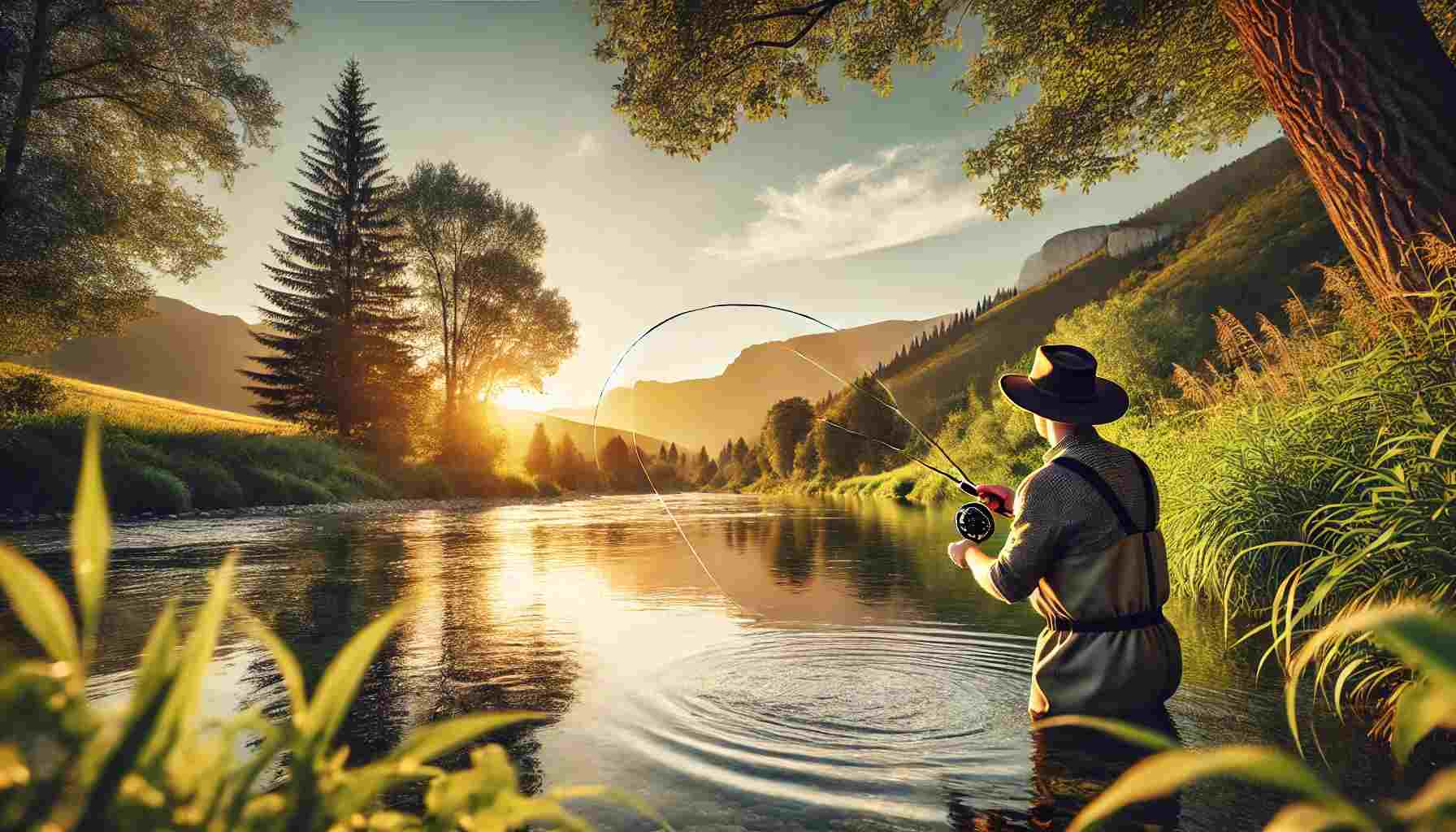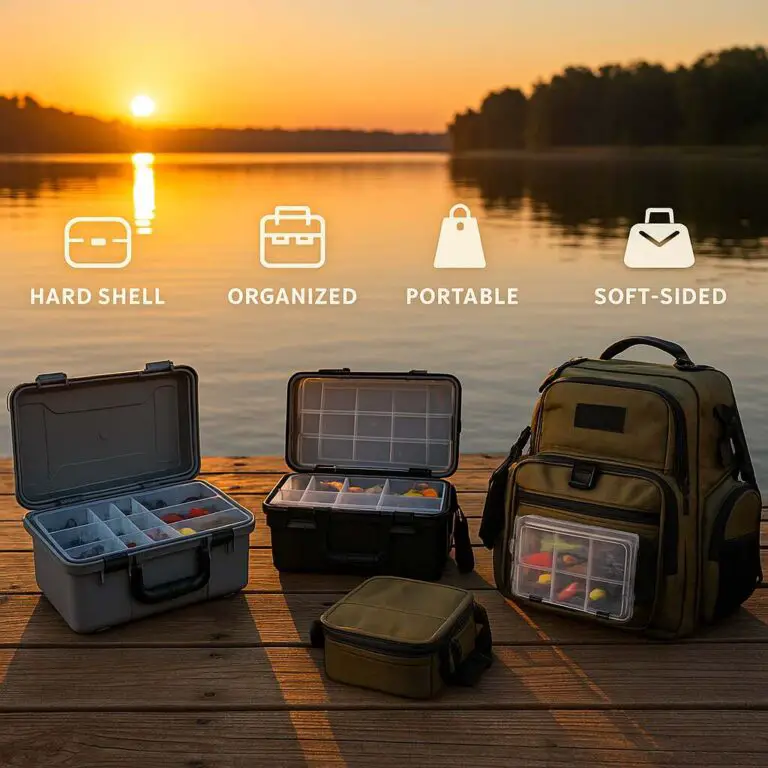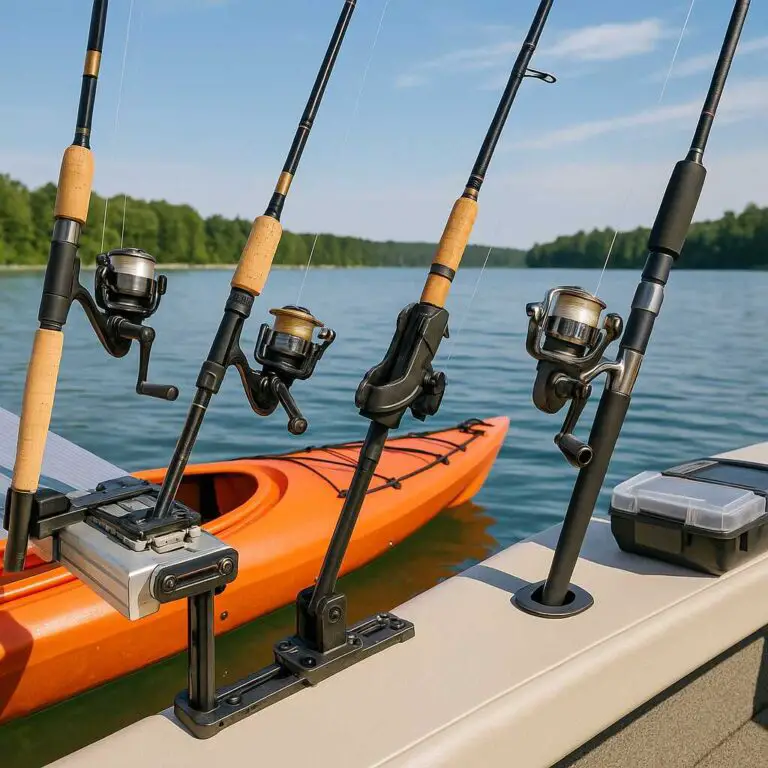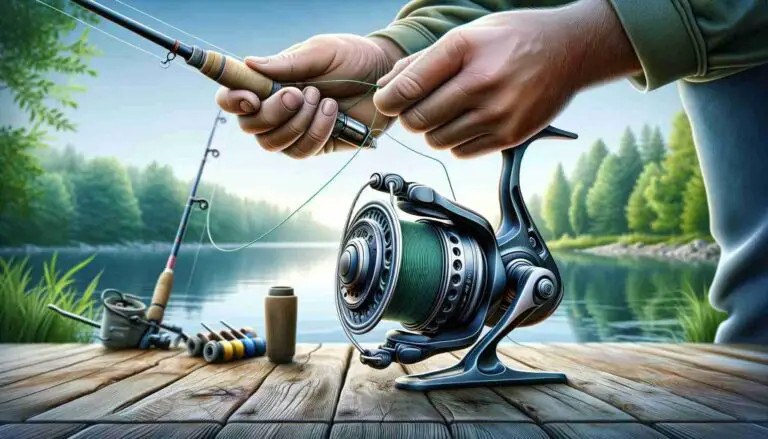This comprehensive guide covers everything you need to know about fly fishing in summer, including techniques, best spots, and essential gear. Whether you’re a seasoned angler or a beginner, this guide will help you make the most of your summer fly-fishing adventures.
Why Fly Fishing in Summer?
Summer is one of the best times for fly fishing due to the abundance of insect activity, warm water temperatures, and increased fish feeding. Fish are more active and willing to bite, making it easier for anglers to catch them. Additionally, longer days provide more time to fish and explore different waters.
Essential Gear for Summer Fly Fishing
Before heading out, make sure you have the right gear to ensure a successful and enjoyable fly fishing experience.
Fly Rods and Reels
For summer fly fishing, a 5-7 weight fly rod is versatile and suitable for most conditions. Pair it with a matching reel that has a smooth drag system. Some popular options include:
Fly Lines
A floating fly line is typically the best choice for summer fishing, as it allows you to fish various depths and water types. Consider a weight-forward floating line for easier casting and better control.
Flies
In summer, fish are often feeding on a variety of insects, so having a diverse selection of flies is crucial. Some effective summer flies include:
- Dry flies: Adams, Elk Hair Caddis, and Blue Wing Olive
- Nymphs: Hare’s Ear, Pheasant Tail, and Prince Nymph
- Streamers: Woolly Bugger, Clouser Minnow, and Muddler Minnow
Other Essentials
- Polarized sunglasses: Improve visibility and reduce glare.
- Waders and boots: Lightweight and breathable options are ideal for summer.
- Fly box: Keep your flies organized and easily accessible.
- Sun protection: Hats, sunscreen, and UV-protective clothing.
Techniques for Summer Fly Fishing
To maximize your success in summer fly fishing, it’s important to use the right techniques and strategies.
Early Morning and Late Evening Fishing
During the hottest parts of the day, fish tend to seek cooler, deeper waters. Therefore, fishing during the early morning and late evening, when temperatures are cooler, can increase your chances of success. Insects are also more active during these times, attracting fish to the surface.
Matching the Hatch
Matching the hatch involves selecting flies that closely resemble the insects fish are feeding on. Observe the insect activity around the water and choose flies that mimic their size, color, and behavior. This technique can significantly increase your catch rate.
Nymphing
Nymphing is an effective technique for summer fly fishing, especially during midday when fish are less likely to rise to the surface. Use a nymph pattern that matches the local aquatic insects and fish it close to the bottom. Adding a strike indicator can help detect subtle bites.
Streamer Fishing
Streamers are larger flies that imitate baitfish and other prey. They are particularly effective for targeting larger fish. Use a sink-tip line or add weight to your leader to get the streamer down to the desired depth. Vary your retrieve speed and pattern to trigger strikes.
Best Spots for Summer Fly Fishing
Finding the right spot is crucial for a successful fly fishing trip. Here are some of the best summer fly fishing destinations in the United States.
Yellowstone National Park, Wyoming
Yellowstone offers a variety of pristine rivers and streams, teeming with trout. The Lamar River, Slough Creek, and Yellowstone River are popular spots known for their abundant fish populations and scenic beauty.
Madison River, Montana
The Madison River is renowned for its large trout and diverse insect hatches. The river flows through picturesque landscapes, providing excellent opportunities for both wading and floating.
Colorado River, Colorado
The Colorado River is a top destination for fly fishing, especially in the summer. The section known as the “Gold Medal” waters is famous for its large brown and rainbow trout. Access points near Glenwood Springs and Rifle offer some of the best fishing.
Deschutes River, Oregon
The Deschutes River is known for its strong runs of summer steelhead and redband trout. The river’s diverse habitat and prolific insect hatches make it a prime spot for fly fishing.
Catskill Mountains, New York
The Catskill Mountains are considered the birthplace of American fly fishing. Rivers like the Beaverkill, Willowemoc, and Esopus Creek are famous for their wild trout and classic fly fishing experiences.
Conservation and Ethical Fishing Practices
Responsible fishing is essential to preserve fish populations and their habitats for future generations. Here are some conservation and ethical practices to follow:
Catch and Release
Catch and release is a common practice in fly fishing, especially in popular and heavily fished waters. Handle fish gently, use barbless hooks, and release them quickly to minimize stress and injury.
Respect Regulations
Always follow local fishing regulations, including size and bag limits, seasonal closures, and gear restrictions. These regulations are in place to protect fish populations and ensure sustainable fishing.
Leave No Trace
Practice Leave No Trace principles by packing out all trash, avoiding damage to vegetation, and minimizing your impact on the environment. Respect other anglers and wildlife to maintain the natural beauty of fishing areas.
Tips for a Successful Summer Fly Fishing Trip
To make the most of your summer fly fishing adventures, consider these tips:
Stay Hydrated
Fishing in the summer heat can be physically demanding. Drink plenty of water and take breaks to stay hydrated and avoid heat-related illnesses.
Plan Ahead
Research your fishing destination, check weather conditions, and prepare your gear in advance. Knowing the local fish species and insect hatches can help you choose the right flies and techniques.
Be Patient
Fly fishing requires patience and persistence. Fish may not always bite immediately, so be prepared to experiment with different flies, techniques, and locations until you find success.
Learn from Others
Joining a local fly fishing club or hiring a guide can provide valuable insights and improve your skills. Experienced anglers can offer tips, share knowledge, and help you navigate new waters.
Conclusion
Fly fishing in summer offers a unique and rewarding experience for anglers of all levels. By using the right gear, techniques, and choosing the best spots, you can make the most of your summer fly fishing adventures.
Remember to practice ethical fishing and conservation to ensure that future generations can enjoy this beloved pastime. Whether you’re casting dry flies on a pristine river or nymphing in a shaded stream, summer fly fishing promises unforgettable moments and the thrill of the catch.
Happy fishing!








